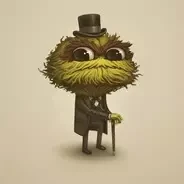Give me your wordplay and obscure culture references, I love them all.
Two divers meet. One say “Hi” the other says “where?!”
Two hunters meet. Both of them are dead.
Which language of origin?
German:
-
Joke: “Hi” is spoke like “Hai” German for shark. So when two divers meet and one says hi, the other thinks, where is the shark??
-
Joke: “to meet” is translated in german as treffen. Treffen can also the mean to hit. So the joke goes from a freindly meet up between hunters to both of them hitting eachother while on the hunt and dying.
That is so incredibly german, holy shit.
It works in Norwegian as well, both of them.
But for the shark one in Norwegian there’s this one:
What did the sand say to the shark? Hihi
What did the shark say to the sand? Hi sand
isnt it haifisch? rammstein vocabulary sorry
Haifisch is also correct but less commonly used. Sounds a bit old-timey, my first association is Mackie Messer (Mac the Knife): “Und der Haifisch, der hat Zähne”.
that song is actually pretty killer, pun intended…
the rammstein lyrics are also pretty dope:
Und der Haifisch, der hat Tränen Und die laufen vom Gesicht, doch der Haifisch lebt im Wasser – so die Tränen sieht man nicht.
cool little song also
deleted by creator
We also say hai in Finnish for shark
-
German.
Hai (similar pronunciation as hi) = shark
hai, lika i svenska?
Both of these work in Swedish as well
[off topic?]
Yiddish. Does not translate to Christian.
Old man goes to the same lunch counter every day and orders the exact same meal every time. Tuna fish salad on rye toast and tomato soup.
One day he walks in and orders his meal. The waiter brings it.
“Waiter, I want you to try this soup.”
“I’m sorry sir, I’ll get you a different bowl.”
“No, I want you to try this soup!”
“I’ll get the manager.”
“No, I want you to try this soup!”
This goes on for five minutes and finally the waiter gives up.
“Okay, I’ll try the soup. Where’s the spoon?”
“Aha!”
What really translates here for me is how exhausting customers can be.
If the server forgot to bring a spoon you could have just said that five minutes ago while the soup was still hot.
you could have just said
No, you could not, and that’s what makes it a Jiddish joke. It’s cultural, not linguistic.
As a stupid curious person, why couldn’t you just say that in Yiddish? Aside from how it wouldn’t be a funny joke anymore lol.
I don’t know about Yiddish culture, but there are a lot of cultures where it would be considered extremely improper to tell someone they made a mistake because this would ring shame on them – complaining to a superior even more so. In these cultures, you have to resort to such indirect clues as described in the joke to communicate complaints.
As I understand it, this joke describes the a clash between shame based and guilt based cultures making fun of both.
FYI…you might want to edit. Or not, because it’s funny that way.
I didn’t know this joke had Yiddish origins. Funnily enough, it was told to me by my Jewish grandmother when she was explaining in a convoluted way that I should sweep before mopping 🤣.
One time, between classes we got on the topic of ethnic humor. The guy I told the joke to looked at me like I was insane, but the Russian immigrant woman who overheard it laughed. Someone else told me that Southern US folks would get it.
I mean, Christians eat soup, too.
It just comes from cans instead of waiters.
This works better when spoken with the appropriate inflections.
Nu?
Spanish:
–Señor, mi mamá quiere saber qué vende.
–Dile a tu mamá que ceviche.
English:
–Mister, my mom wants to know what are you selling.
–Tell to your mom that ceviche.
Ceviche is, well, ceviche. In north west of México, we often say “vichi” to say “nude”. “vicharse” would be “get naked”, so “Dile a tu mamá que ceviche” can be a pun for “dile a tu mamá que se viche” (Tell to your mom that get naked)
Que le dijo un pez a otro pez?
Nada!What did one fish say to the other? Nothing(/Swim)!
Un león comió jabón. Ahora, es puma/espuma.
I get it. The spanish wordt for swimming is “nadar”, which sounds almost the same. Seems like DuoLingo isn’t completely useless after all.
Not a spanish speaker but isn’t ‘nada’ also swim, as in a command to?
Imperative conjugation of nadar is nada
Una estrella estrellada
Spanish wordplay: ¿Por qué está feliz la escoba? Porque siempre barriendo.
Translation: Why is the broom happy? Because it’s always sweeping (barriendo = sweeping, sounds like va riendo = goes around laughing)
El pan está blando ¿Y qué dice?
Oye, esa oración no tiene sen—ooooooh. 🙈
“Was ist der Unterschied zwischen Schach und Billard?” - “Beim Schach hat man den Kö nich.”
“What’s the difference between chess and billiards?” - Answer is a pun, can mean both “In chess, you have the king.” and “In chess, you don’t have the cue.” Doesn’t translate at all.
No matter how sloshed you may be, Goethe was a poet.
Tap for spoiler
“Dicht” is a word for “drunk/pissed/sloshed”. “Dichter” is both “poet” and “more sloshed”.
Oh God there are so many of these.
No matter how young your friends are, Jesus’s friends were apostles.
No matter how well you drive, trains drive freight.
No matter how empty you feel, remember, there others who are teachers (this one works out unexpectedly well)
No matter how well you drive, trains drive freight.
I didn’t know that one and it makes me so happyyy yaaay :D
「野菜を食べやさい!」
I think a close-enough approximation (which isn’t close at all) would be “eat your veggies, peas.”
Is -やさい just a cheeky pun off of -なさい?
>:]
In the garden, there are two chickens.
庭には、鶏が二羽いる。
I almost forgot about that one!
English is squeezing the last scraps of Japanese out of me. :(
5回も誤解した
life is like a cucumber, sometime in your hand sometime in your ass. Arabic/Sudanese dialect
el eisha zey el ajoura, mara fi eedak, mara fi teezahk
……
what am i doing with my life 🙈
Får får inte får. Får får lamm.
sheeps don’t get sheeps. Sheeps get lambs.
Får = sheep/to get
var tog vägen vägen? Ute på en åker och åker
where did the road go? Out in a field and driving
“Tog vägen” = literally “took the road”, meaning “where did it go”, sort of. And åker = driving and a farm field.
I got a t-shirt from the Swedish Society for People with Anxiety. It came with a print on the chest.
“print on the chest” would be “tryck för/på/över bröstet” having the double meaning “preassure over the chest”.
Then there are endless of jokes from Gothenburg which all do not translate.
Who is faster, Eminem or Taylor Swift? Eminem, he is a rapper
“rapper” in swedish is “rappare”, meaning also “faster”.
In stockholm a snake escaped the zoo and has not been found. The zoo is missing him a lot
The last bit in swedish would be “saknaden är enorm”, “saknad” being the emotion of missing someone, “enorm” being large/a lot/great. But also enorm=en-orm=a-snake.
Who’s the stinkiest Norse god? Gar-loki
Works better in Dutch, I swear
3 students share an apartment and 2 of them study a lot but the third spends most his nights partying. The 2 studious housemates decide to pull a prank on him, and one night when he comes home they are waiting for him next to the bedroom door wearing white sheets. One of the friends says ‘welcome friend, I am Peter!’. The other says ‘welcome friend, I am Paul’. The drunk house mate looks at them and says ‘Colleagues! would you mind stepping aside? I am Lazarus!’
yeah, that doesn’t translate… in Dutch, the names refer to St peter and St Paul and both end in -us as well: Petrus and Paulus. Also, ‘being Lazarus’ means being very drunk.
After the workers are finished, Mandy from Saxony comes home to see the result of the house renovation.
The entire floor is covered in white bread.
She shouts “What’s this? I wanted parquet flooring, not baguette flooring!”(Parquet and Baguette are pronounced exactly the same in Saxonian dialect)
Here’s one which only works if you know BOTH Portuguese and English:
“In Portugal it’s very common for old ladies to go to a coffee place and ask for a big cock”
(Explanation: the Portuguese word for milk with coffee - “galão” - also means “big rooster”. Those are the only two meanings it has in that language. However when you translate it to English you can use a certain synonym for “rooster” which can be read as having another, very different, meaning)
From Danish: You can make a call from Ringsted to Thisted but you can’t pee from Thisted to Ringsted.
For those curious, Ringsted and Thisted are Danish cities. “Ring”, like in English, is the sound a phone makes when you make a call, and in Danish we say that we “ring” someone, when we call them. “This” is pronounced like the Danish word “tis”, which means pee.
Another danish one: How do you make a goldfish laugh?
You put it in spring water.
I thought I might make a joke about the Deutsche Bahn but I don’t think it would go over well.
Tap for spoiler
Edit: I should add explanations.
“To go over well” in German is “(gut) ankommen”. “Ankommen” also means “to arrive” - which Deutsche Bahn trains are notoriously bad at doing in a timely manner.
German joke with word play: " ‘Nur noch schnell einen runter holen, dann ist Mittag’ - Karl Heinz (Flackschütze)"
“Hello, I’d like one of those smurfs from up on that shelf, please.”
“Want me to get one down for you?”
“Sure, if I can get a smurf in return?”Flak ohne ck (von FLugAbwehrKanone)
Legastenie lässt grüßen














